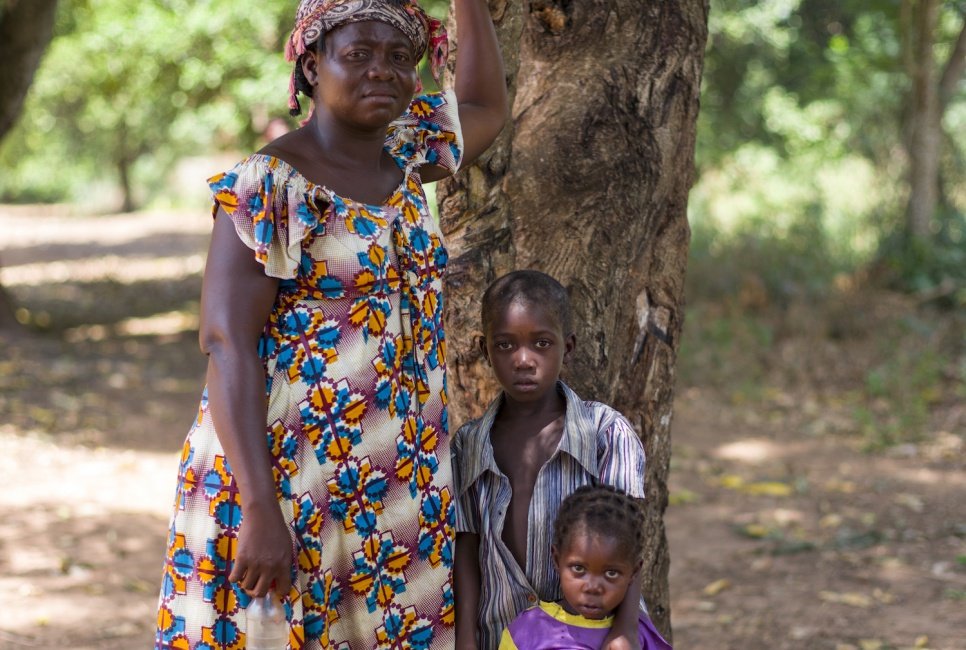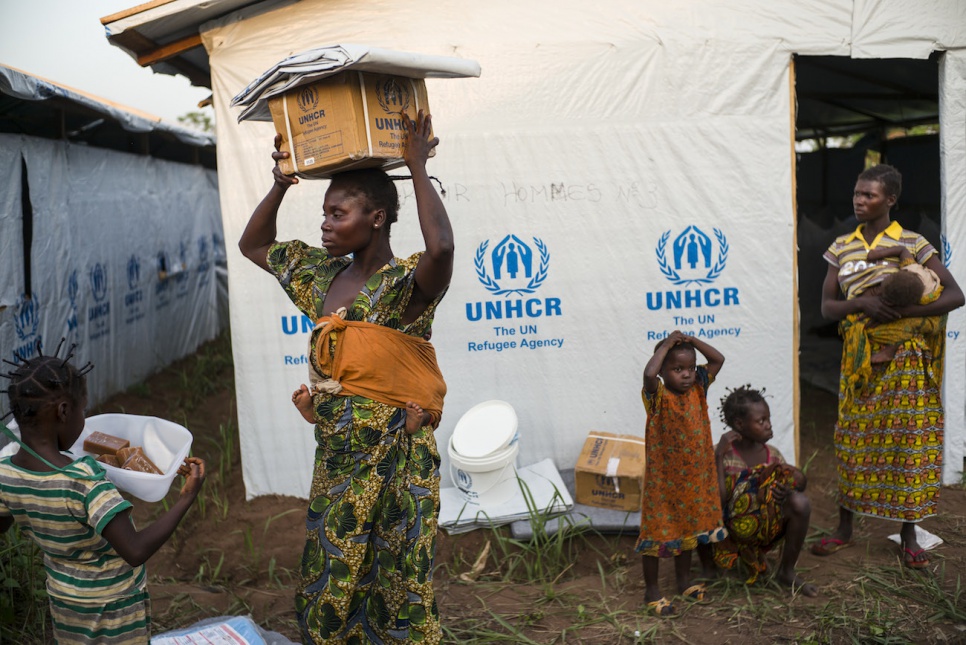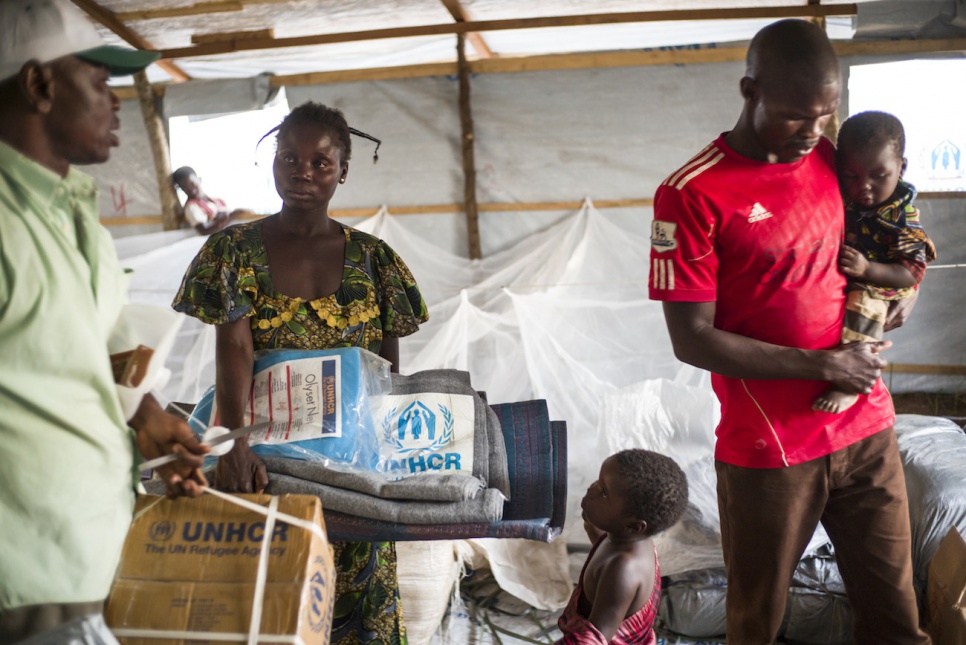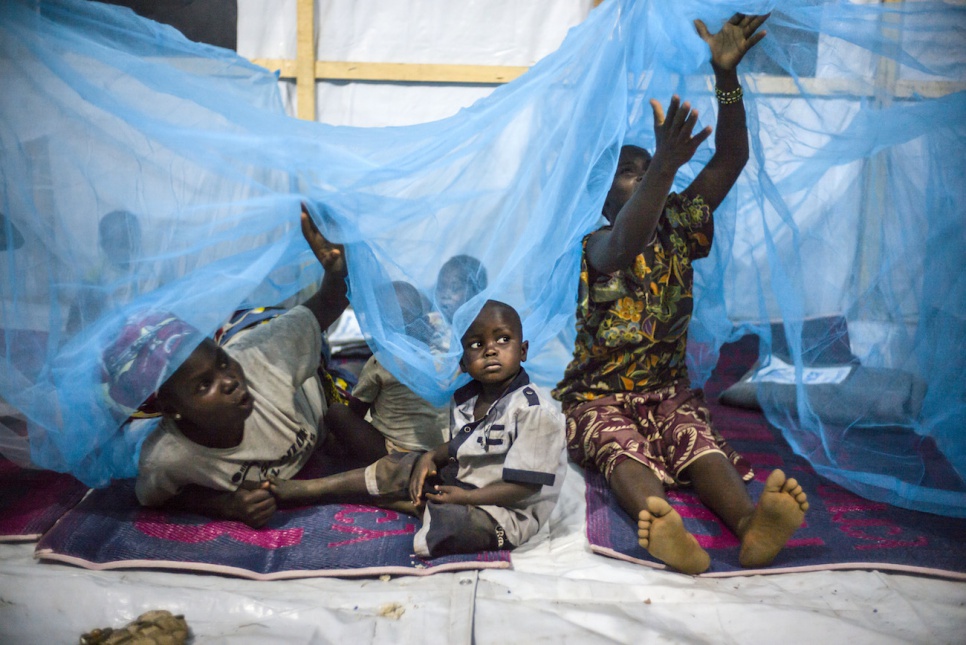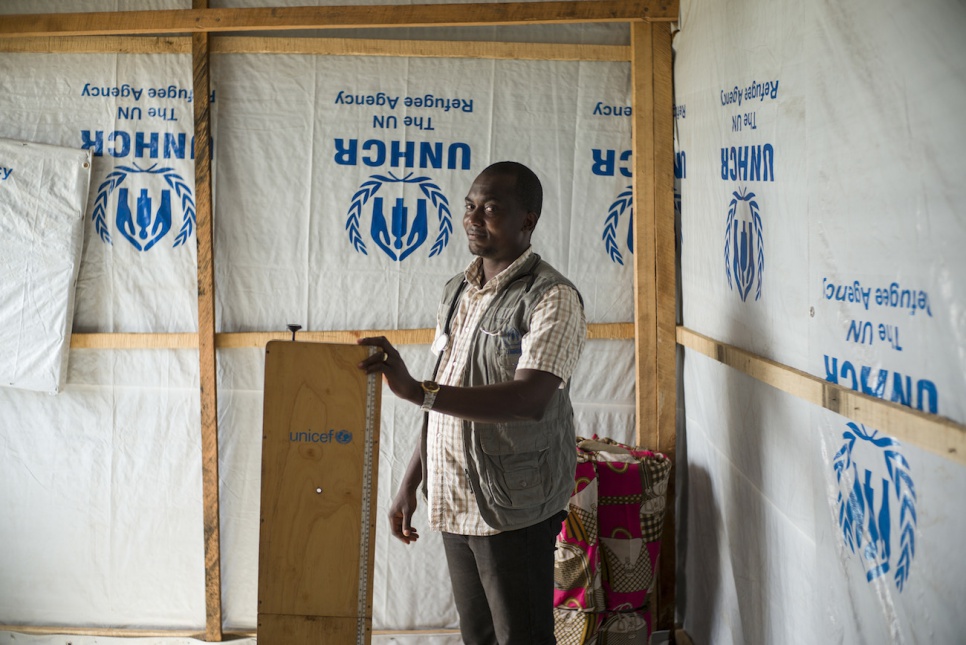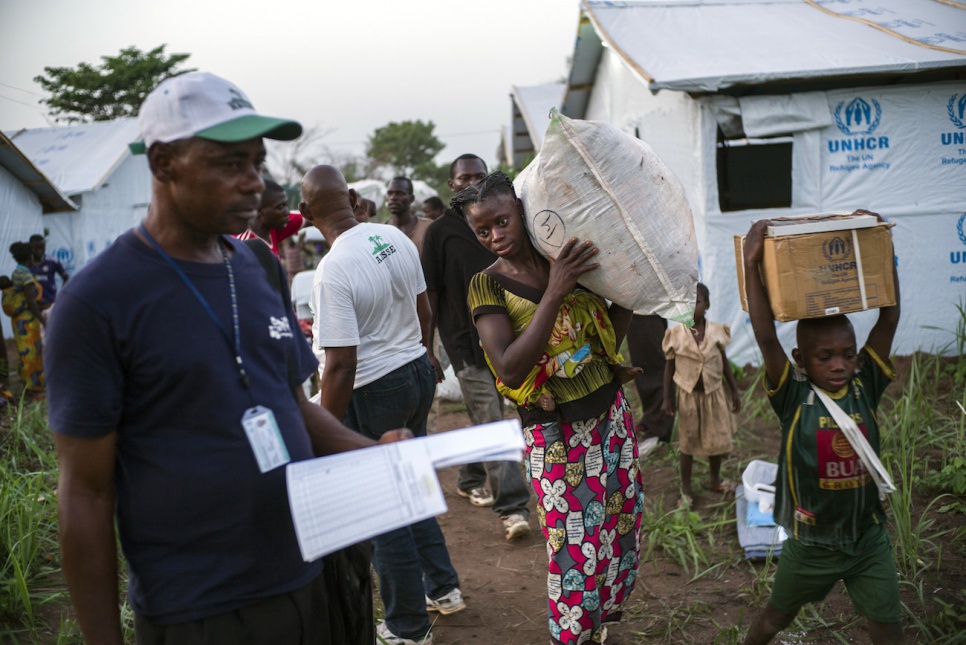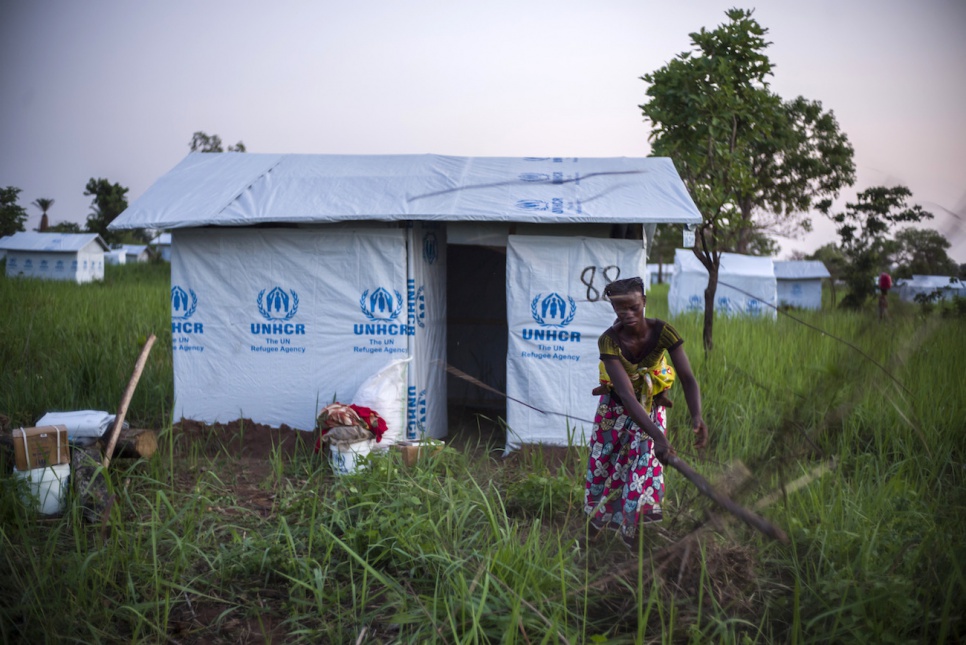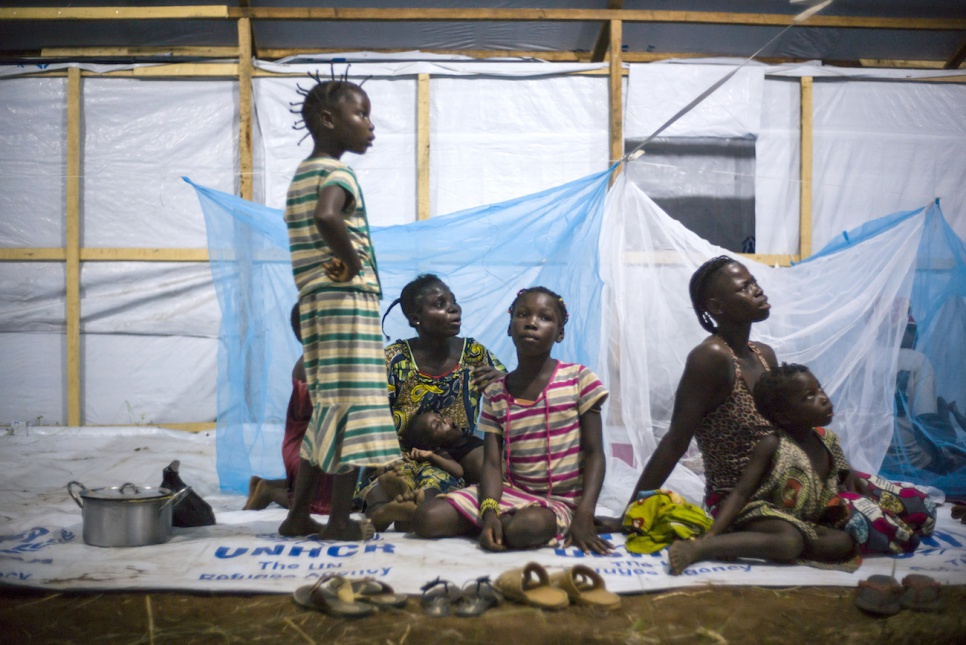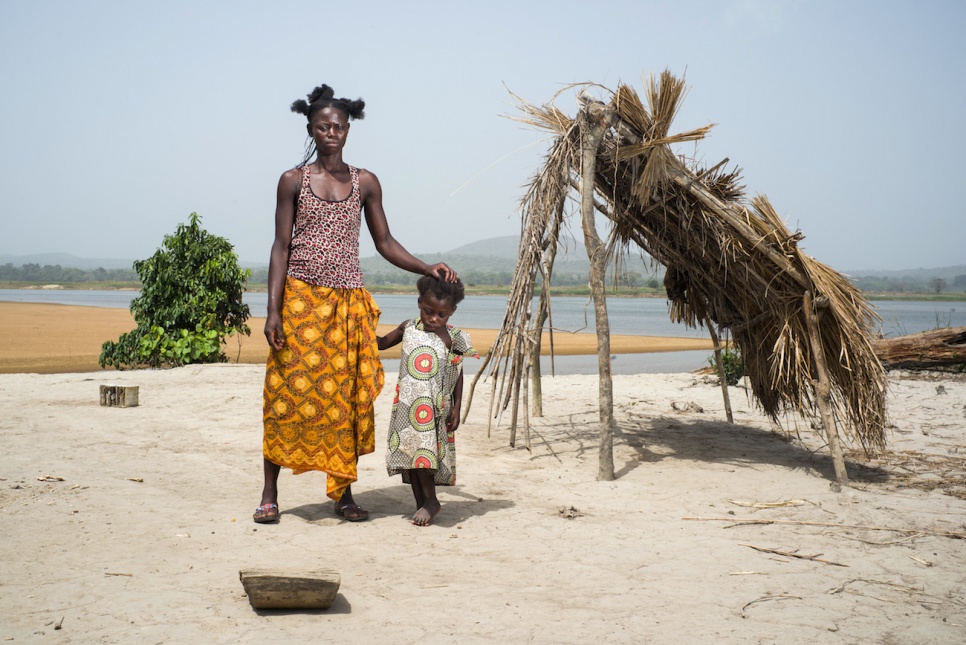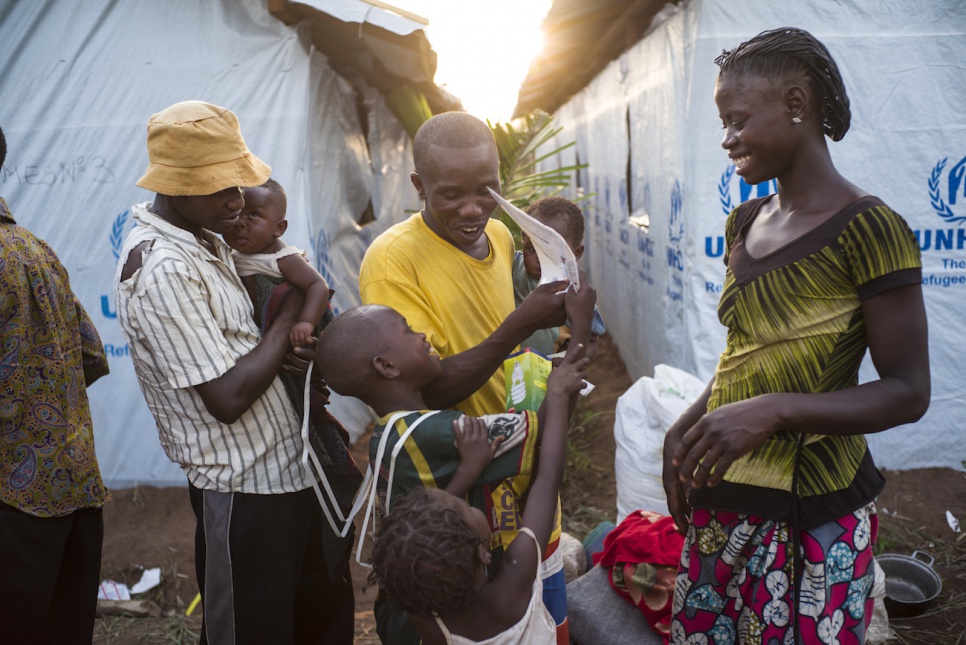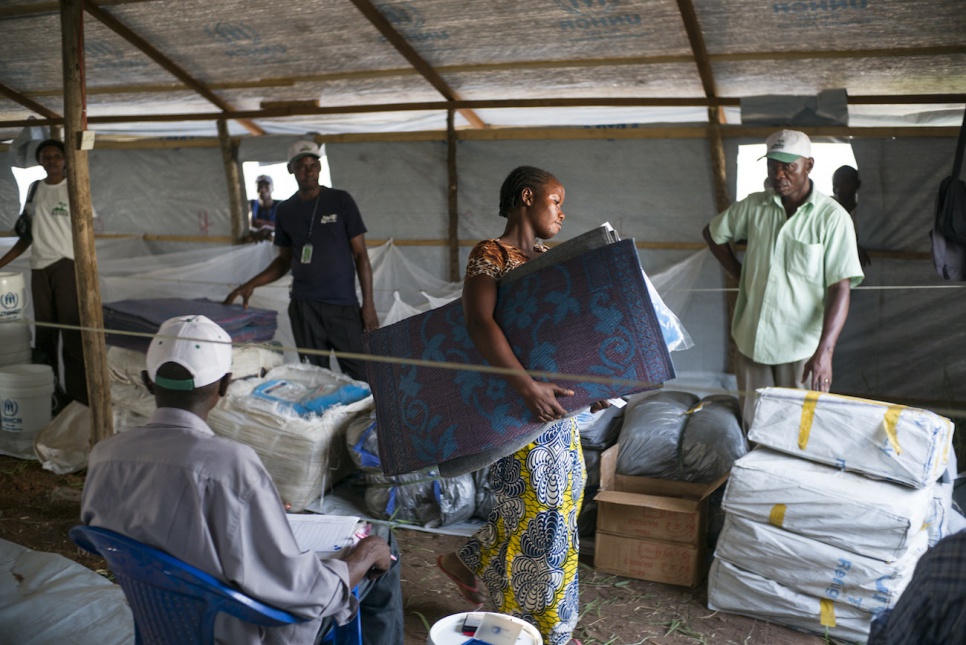The Malaria Medics
In the Democratic Republic of the Congo, a medical team arrives to care for refugees who left everything behind in the dash for safety.
Dr. Andre Kapend Mukatshung, a UNHCR medical coordinator, visits Bili camp in northern Congo.
© UNHCR/Corentin Fohlen
Hundreds of refugees from the Central African Republic gather under a mango tree in Gbadakila village in the Democratic Republic of the Congo, a few kilometres from the border. They watch with curiosity as health workers set up a mobile clinic that could ultimately save some of their lives.
A doctor and two nurses from UNHCR's partner ADES International will spend the next three days in the area, examining refugees and local residents alike. Quickly and methodically, the team positions a few tables and chairs in the shade of the mango tree to serve as a consultation room and a pharmacy. Here, they will examine each person individually.
Célestine Daikoutekle, a 40-year-old mother of nine, is one of the refugees living in the area. As she is able to speak some French and Sango, the two official languages in the Central African Republic, she plays the role of translator for the medical team. After explaining to the other refugees how the mobile clinic works, she calls her five-year old daughter, Sandrine, who is sick, for a consultation with the doctor. A quick test confirms that Sandrine suffers from malaria. Her mother is not surprised.
"I've been here for eight months," Célestine tells me, while a nurse prescribes her daughter with a drug called Coartem. "I live in a shelter we built with dried leaves. We have three mosquito nets that we bought in Gbangi [a nearby town], but they are already pierced and torn. We bought them to prevent us from diseases, but my children very often suffer from malaria."
More than 20,000 new refugees from the Central African Republic have arrived in northern Congo since the end of 2014, bringing the total number here to almost 90,000. They live in spontaneous settlements near the banks of the Oubangui River, where malaria is endemic.
"Very often during the mobile clinics, more than 32 to 34 per cent of the refugees we examine have malaria," says Dr. Jean-Claude Mulunda, who leads the three-day clinic in Gbadakila village. "The majority of them are children who come with fever."
During their time here, the visiting health workers register malaria as the leading disease among refugees. It is also, Mulunda notes, one of the main causes of death among new arrivals.
"I live in a shelter we built with dried leaves. We have three mosquito nets that we bought in Gbangi, but they are already pierced and torn."
Refugees in Gbadakila are aware that bed nets can help prevent fly and mosquito bites. But many do not know that mosquitoes transmit malaria, so bed nets are seldom a high priority. Having lost nearly everything during their escape, their main concern is finding food. Only a few managed to bring mosquito nets when they fled. Some find a way to buy one after reaching safety, but often these are old and offer little protection.
In March 2015, UNHCR opened a fifth camp for new refugees in Congo's Equateur Province. Located in the town of Bili, some 50 kilometres from the border, it takes in new refugees on a daily basis. Upon arrival, they receive shelter, food, sleeping mats and blankets, as well as other essential items, including mosquito nets treated with insecticide.
Souzane Yamburungbia, 26, is one of the refugees who have opted to transfer from a spontaneous refugee settlement near the river to Bili camp. Together with her husband, their four children and her mother-in-law, Souzane had been living in a makeshift shelter in Baladamo Rive for two months. They fled an attack on their village – Gbamongo, in the Central African Republic – and crossed the Oubangui River in a wooden boat to reach the Congolese side of the river. They fled with nearly nothing, grabbing anything they could before running from their home.
"When we heard noise and that the Sélékas were coming, we took everything we could in the house," says Souzane. "We tore the mosquito nets when we crossed with them. I know that the mosquito net is important because it protects us from very bad illnesses."
Upon reaching Bili, Souzane and her family received blankets, sleeping mats and other supplies – including mosquito nets.
"I know that the mosquito net is important because it protects us from very bad illnesses."
Tatiana Golomo Reine, a 30-year-old mother of four, also chose to be transferred to Bili refugee camp after spending six months in spontaneous refugee settlement at Baladamo Rive.
"The anti-balakas entered our village," she recalls. "They killed many people. I fled towards the fields. I wanted to go back to my house to take the kitchen utensils, but the anti-balakas stopped me. I managed to flee when they turned around. They burnt everything they could find, including my house. I don't even have clothes to change."
Like Souzane, Tatiana understands the importance of mosquito nets and bought one when she first arrived in Congo.
"People from the village sold this mosquito net. I bought it for 500 CFA Francs to protect me and my family from mosquitoes and the tsetse fly. Malaria is really strong here. Many people die from it. But the mosquito net is pierced. I use it because I don't know where to find a new one. Mosquitoes are entering the mosquito net. Everyone in my family suffers from malaria. Every week, we have a new case, and we have no drug to treat it."
The next day, Tatiana undergoes a medical check at the health centre in Bili and receives three mosquito nets for her family.
For now, Tatiana, Souzane and their families are in safe hands. But Tony Mayawula, the doctor in charge of the health centre at Bili camp, says that more needs to be done to treat and prevent malaria among refugees.
"We are still at the beginning," he says, describing his team's efforts to teach refugees about malaria and other health issues. "We will identify community workers who will be trained by health workers and tasked to spread the word and continue the sensitization in the camp."
This story was reported with support from the UN Foundation's Nothing But Nets campaign.

